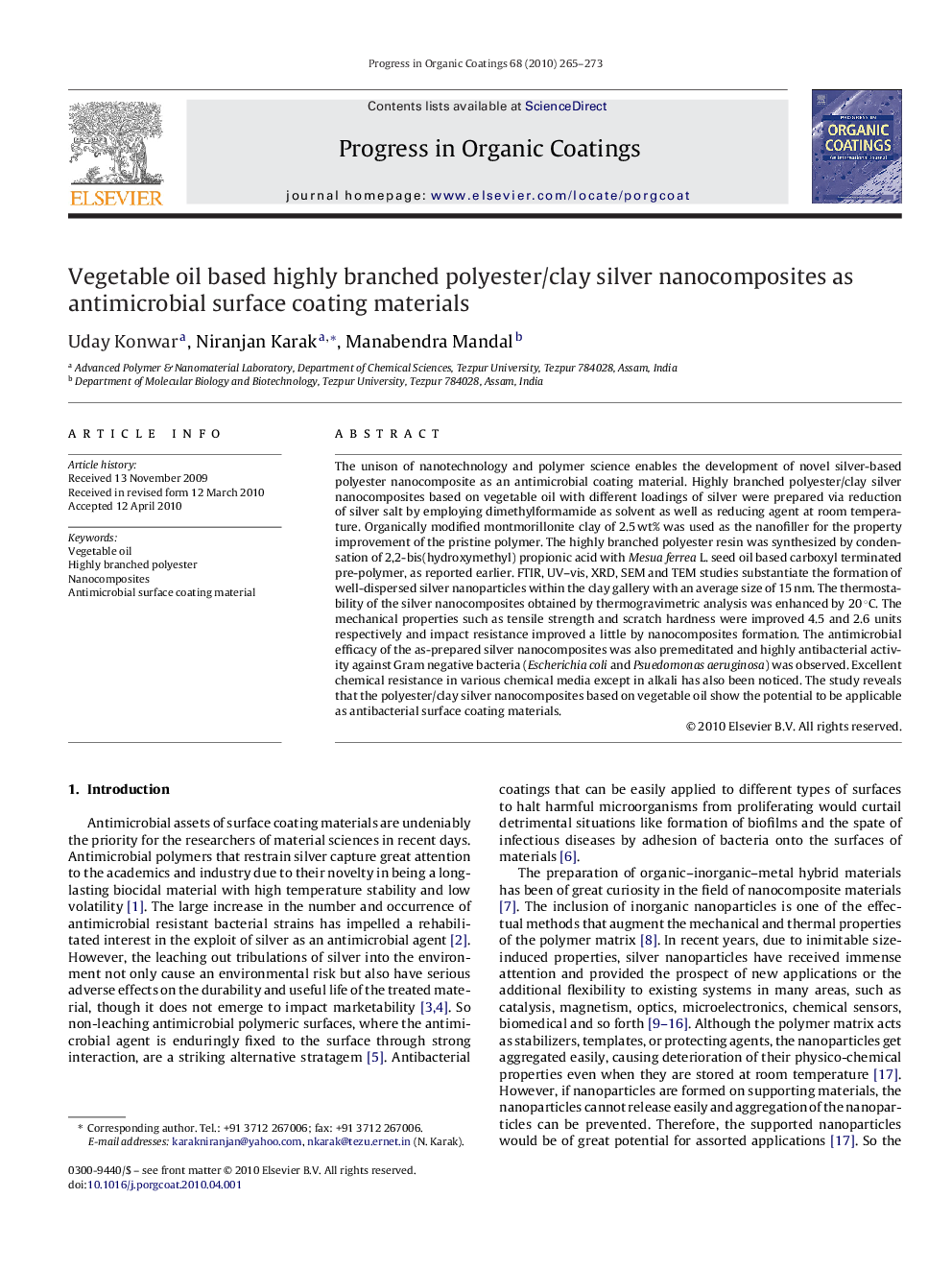| Article ID | Journal | Published Year | Pages | File Type |
|---|---|---|---|---|
| 693417 | Progress in Organic Coatings | 2010 | 9 Pages |
The unison of nanotechnology and polymer science enables the development of novel silver-based polyester nanocomposite as an antimicrobial coating material. Highly branched polyester/clay silver nanocomposites based on vegetable oil with different loadings of silver were prepared via reduction of silver salt by employing dimethylformamide as solvent as well as reducing agent at room temperature. Organically modified montmorillonite clay of 2.5 wt% was used as the nanofiller for the property improvement of the pristine polymer. The highly branched polyester resin was synthesized by condensation of 2,2-bis(hydroxymethyl) propionic acid with Mesua ferrea L. seed oil based carboxyl terminated pre-polymer, as reported earlier. FTIR, UV–vis, XRD, SEM and TEM studies substantiate the formation of well-dispersed silver nanoparticles within the clay gallery with an average size of 15 nm. The thermostability of the silver nanocomposites obtained by thermogravimetric analysis was enhanced by 20 °C. The mechanical properties such as tensile strength and scratch hardness were improved 4.5 and 2.6 units respectively and impact resistance improved a little by nanocomposites formation. The antimicrobial efficacy of the as-prepared silver nanocomposites was also premeditated and highly antibacterial activity against Gram negative bacteria (Escherichia coli and Psuedomonas aeruginosa) was observed. Excellent chemical resistance in various chemical media except in alkali has also been noticed. The study reveals that the polyester/clay silver nanocomposites based on vegetable oil show the potential to be applicable as antibacterial surface coating materials.
